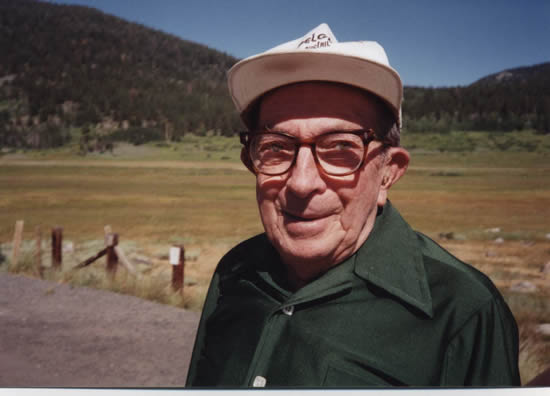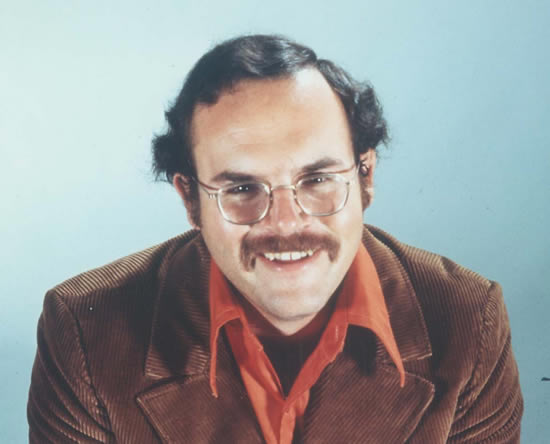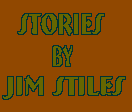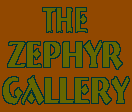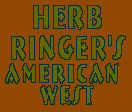

LONGING FOR A MYSTERY
I was a 10 year old Boy Scout, at the end of a long 16 mile hike in Brown County, Indiana when I saw my first UFO. It was a cold starry night in March and my buddies and I gathered in an open field for our Troop school bus to pick us up and drive us home to Louisville. Suddenly, someone yelled, "Hey! Look at those lights....what is that?"
We collectively swung our young necks skyward. There in the northern sky, three lights hung silently above us. Imagine a pencil, dangling from a string, with small lights at both ends and in the center. Imagine those lights, in darkness, without being able to see the pencil itself. That is the sight we beheld. We listened for the sound of a jet or plane, but there was no noise at all. It moved slowly across the sky...stopped...pivoted on its front axis, then slipped away from us until it disappeared over the trees.
My friend Sammy Sullens exclaimed, "THAT was a UFO! I can’t believe we saw a UFO!"
I’d never heard of such a thing. "UFO?" I asked. "What do you mean?"
"A UFO!" Sammy said. "You know...an ‘unidentified flying object.’ A flying saucer!"
"A flying saucer? Where do they come from?"
Sammy shook his head. "You really ARE a dumb little kid."(He was 12. I was 10.) "They’re from outer space. From another planet! There are aliens in those UFOs!"
I’d never felt so exhilarated in my life. Aliens from outer space? Flying saucers darting over my head in the skies above Brown County, Indiana? I could feel my heart pounding in a way I’d never experienced before. My introduction to the Unknown. I loved the mystery of it all. It’s probably what drew me to the canyon country, a decade later, with its vast and unexplored open space and its strange and fantastic landscape.
But why do we need a mystery to begin with? And do true, unexplainable mysteries even exist? As more of the natural world is explored and exploited, and mapped and gridded and Google-Earthed, and marketed and packaged, I think some of us find ourselves turning to the supernatural as a mystery of last resort. The Last Unknown is the place we’re not sure even exists. Sounds like a safe place to be for the time being.
As for true unexplainable mysteries? I’ll let you be the judge of that. For me the jury’s still out.
WAS IT JUST A DREAM?
If there is one inexplicable thing in our lives, it must surely be the dreams we all experience almost every night we lay our heads on the pillow and drift toward sleep. Often we forget them, sometimes we’re haunted by them. Occasionally they’re so intense, they wake us with a start. I have, from time to time, spent the better part of a day, troubled by some vague feeling of impending doom, wondering why I’m so unsettled. Then the memory of a previous night’s bad dream will return and the dread goes away.
Some humans have dedicated their lives to dream analysis and others have buried their dreams so deeply, they refuse to even acknowledge the experience, much less the meaning.
For me, it’s still part of the Great Mystery. Are dreams anything more than a manifestation of our own subconscious? Do they mean anything? Are the people who inhabit my dreams mere images in my head, or are they truly paying me a visit?
In times of extreme crisis, and especially when it involves death, we all seem to be more susceptible to the suggestion that our dreams carry a special meaning, or even a message from beyond the grave. For me, I’m a hopeful skeptic. I’ve turned to my dreams to give me comfort, but I’ve never been totally convinced my own brain wasn’t just trying to make me feel better.
But two dreams stand out clearly in my mind; if they were "just dreams," they are still unforgettable and will be there still when I draw my own final breath.
I’ve lost my share of dear friends over the years; some of them lived long, fruitful lives; others were taken away from us years or decades before they should have been. In some cases, they were just getting warmed up for this thing called Life.
Two of my dearest friends were Herb Ringer and Bill Benge. Herb died almost a decade ago, on my birthday, in fact, and lived to the ripe old age of 85. But Bill died just a few months after his 60th birthday, at a time in his life when he’d never been happier.
But I would swear that both old friends paid me a nighttime visit, not long after they passed on, and I feel compelled to share those visits. I’d like to believe it really happened.
Herb Ringer’s health had begun to deteriorate in the summer of 1998. In August, he gave up his home of 46 years and moved into a retirement center; he was almost blind from macular degeneration and he felt he had no other choice. But I feared that he’d lose his identity, if he walked away from the old Smoker trailer he bought in 1952. And indeed, within weeks, he declined rapidly. For a man whose memory meant everything to him, Herb must have felt like an alien to himself, as the history of his life ebbed away.
In late November, I spent some time on the phone with Herb’s doctor. Though there was no immediate cause for alarm, it seemed to him that Herb had lost the will to live. I wasn’t surprised. Later that day, I described Herb’s declining health to my friend John Hartley.
"You know," I said, "I think Herb is going to die on my birthday."
John looked startled. "Why would you say that?"
I shrugged. "Don’t know. Just a feeling, I guess.
But the feeling didn’t go away.
The next Zephyr press day was December 11, and I’d already planned an issue called, "Then and Now—the way we were, the way we are." On the cover were two pictures of Herb. The first was a childhood image, taken by his father in 1921. The second was one of my own, shot in August when I helped him move.
On the morning of the 11th, I made the two hour drive to Cortez, Colorado, where The Zephyr was printed for 14 years. All day I was haunted by premonitions. In early afternoon, I loaded the last of the copies into the truck and raced back to Moab, convinced I’d find a sad message on my answering machine when I got home.
But when I walked in the door, the blinking red message light was dark. I breathed a sigh of relief and walked up to Dave’s for a cup of coffee. An hour later I came home to the blinking light I’d been dreading.
Herb had died at 2 pm.
That afternoon, I contacted the hospital and then the retirement home. A wonderful woman there, an RN named Patty who had taken a personal interest in Herb, helped me deal with all those "arrangements" that have to be made, when we are least capable of dealing with anything at all but our own grief.
A few days later, I had the most remarkable dream....
I was standing waist-deep in a swift clear mountain stream, but safely in the shallows and out of the current. Floating on his back in front of me and looking perfectly serene was Herb. Only my firm grip on his shoulders kept him in the backwater.
The banks were green and lush but mid-stream granite boulders disrupted the water’s flow and created eddies and swirls. It looked dangerous to me, but Herb wanted me to push him into the current. I argued with him, insisted it was too risky, but he just nodded and smiled.
"It’ll be okay, Jim...just give me a push."
I hesitated again and he put his hand on mine and patted it.
"Okay Herb."
I reluctantly released my grip and as he floated by me, feet first, I gave his shoulders one last push. The current grabbed him almost instantly and I watched Herb enter the heart of the stream. But as he passed one of the granite boulders, Herb was snared by an eddy and I watched with alarm as he spun in small circles near the rock.
"Herb!" I cried out. "Are you alright?"
But no sooner had I called to Herb than the eddy released him into the free current. As he floated downstream, Herb Ringer raised one hand and waved goodbye.
The next morning, I felt very good.
Bill Benge’s sudden death last October, at only 60, was much harder to accept. He’d been plagued by bad health for decades (though he rarely complained) and had suffered personal losses of his own, including the early death of both his children. Still, last autumn, he was as happy as I’d ever seen him. From the neck up, Bill was at peace with the world; it was his body that failed so badly. When I learned late that Friday night, that he had died of a massive heart attack, it was a shock but not really a surprise. But having to adjust to a world without the dry wit and sardonic observations and loyal friendship of my old pal Willie Flocko was almost unbearable.
As if to help me along, a few weeks later, I’d swear Bill dropped by in the middle of the night.
Bill loved to hang out at Andy Nettle’s Arches Book Company in the mornings. It had become his new hangout—the coffee was strong and the conversation was easy. In my dream, incredibly, this is where I found him. The place was full of Bill’s friends, but no one else could see him. He was sitting on the end of a couch and I almost fell over when he looked up at me and smiled.
"Bill?" I said, "Is that really you? You’re alive?"
Bill just nodded.
I was almost ecstatic. I missed my old friend so much and now, here he was, back at his regular place, sipping a coffee and enjoying the ambience, basking in the warmth of all his friends, even if they couldn’t see him. I turned away for a moment, to the large crowd around him, but when I looked at Bill again, he’d changed. It was still Bill, but he was a young man now, maybe 30 and in the peak of health.
I said, incredulously, "Bill...is that still you?’
He looked up at me and nodded and said, "It’s what happens."
And then I woke up.
So what happened? Did my brain invent all this, to help me cope better with the loss? Was it, in both instances, wishful dreaming? Or did my dear friends somehow find a way back, just to let me know everything was okay. What would you prefer to think?
RON RICHARDSON....
AN UNUSUALLY HONEST MAN
Most of the time, I have to admit, I’m not much of a cheerleader for the human race; the story that follows this one will attest to that. But every once in a while, my own species pleasantly surprises me.
I’d been looking for a shed—one of those pre-fabs—to put in my backyard. My home is overflowing with the detritus of my life...junk that I cannot, nonetheless, seem to part with. I finally called a hardware store in Cortez who directed me to a guy named Ron Richardson. Ron explained that he built sheds on-site and could be over here in a week to do the job. He said he could have it finished over the weekend. And he could do the job for a reasonable price.
I knew this man must be insane.
I asked him if he took credit cards but he was a checks or cash only operation. I explained that I used my credit card almost exclusively so I could collect frequent flyer miles and get free flights to other countries in order to escape this scenic pesthole every winter and Ron could not have tried to be more accommodating. He proposed that I use my card to cover his building materials costs at Home Depot, which for several projects was about equal to the cost of the shed. It sounded like a good idea to me.
On the proposed work day, Ron showed up, all of three minutes late, with a trailer load of materials to build the shed. We called Home Depot and I tried to use my credit card to pay Ron’s bill, but they thought the whole deal sounded odd to them and refused to accept my card.
Then things got really weird.
Ron says, "How much does it cost to buy 2500 frequent flyer miles?"
I told him I really didn’t know.
"Well," he explained. "Find out what it would cost and I’ll deduct that from the price of the shed."
"Huh?" I said.
"That’s only fair," Ron said. "That was the deal...that you could use your credit card."
I didn’t know whether to hug him or call the mental health authorities. I refused his offer of a discount because his honesty was worth more to me than 2500 frequent flyer miles.
He finished the job on schedule. I now have all kinds of empty space in my house that I can fill up with new detritus and finally, I have found, albeit kicking and fighting all the way, one more reason to not give up totally on the human race.
FINALLY...SUWA CALLS IT WHAT IT IS:
WILDERNE$$
If you are a regular reader of The Zephyr or if you’ve had a chance to read my book, Brave New West, you know that I’ve had a long running disagreement with the mainstream environmental community in Utah and elsewhere over the impacts of the "amenities economy" and their responsibility to deal with those impacts.
The response from my old friends has been bewildering. Over a decade ago, they touted the amenities economy as a solution to the economic woes of the rural west. On the other hand, they’ve refused to link the exploitation of beauty itself to their quest for a wilderness bill and have steadfastly turned a blind eye to the impacts that eco-tourism creates. Or they insist that they have tried to mitigate these problems but that the "amenities economy" is something bigger than they can deal with. Take your pick.
As recently as last year, in High Country News, SUWA’s executive director Scott Groene explained, "The environmental movement has not advocated for this new economy...We have raised concerns about guidebooks. We have raised concerns about agencies creating user areas that will only draw more use. But the new economy is being driven by forces that are far greater than we are."
Well that’s not exactly true. They have protested creating user areas that expand ATV use (and I agree wholeheartedly) but they duck and cover otherwise. As for their opposition to guide books, the staff at SUWA publicly opposed them a decade ago. In an article in the Salt Lake Tribune in 1995, Groene even said, "We have not actually come out yet and started burning guidebooks, but given our goals of trying to protect the land, we felt we had to adopt this policy to be consistent in our position."
Then their board overruled them. Not only did they do a 180 degree turn, SUWA hired one of Utah’s most prolific guidebook writers, Steve Allen, to tour the country on its behalf, with an almost embarrassingly self-promoting slide show called, "Canyoneering Chronicles: The Legend Speaks." So much for "being consistent in our position."
But now, finally, it appears environmentalists in Utah are ready to embrace the amenities economy publicly and even acknowledge that the money generated by all this madness makes their job easier.
According to an August KCPW public radio story, "The Outdoor Industry Foundation says outdoor recreation has an annual economic impact of $6 billion a year in Utah and accounts for 65,000 jobs. That’s making state officials more receptive to conserving wilderness, says Scott Groene of the Southern Utah Wilderness Alliance."
In KCPW’s interview, Groene explained, "When the Outdoor Industry a couple years ago spoke up about the importance of their industry and threatened to pull the [Outdoor Retailer] tradeshow from Salt Lake City, they got the governor’s attention. And it changed the debate from one that protecting lands would devastate local economies to not only would they not devastate local economies but there was actually a benefit to protecting lands."
According to the KCPW article, "Groene says being eco-friendly isn’t just for activists like SUWA. It’s also good business."
So finally, we’ve located the bottom line. In fact, according to SUWA, the bottom line for wilderness really is...the bottom line. Those "far greater" market forces that Scott complained about just a year ago, are now the same forces he and the environmental community finally embrace.
It’s why, with a heavy heart, I spell it "wilderne$$."
